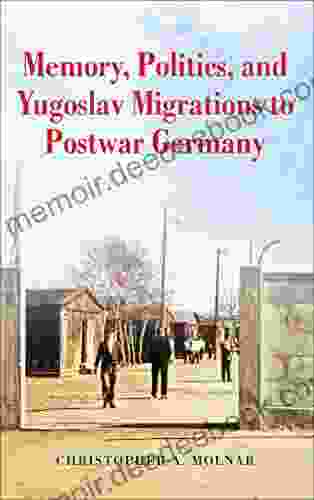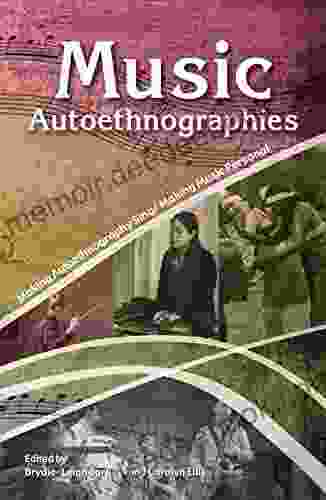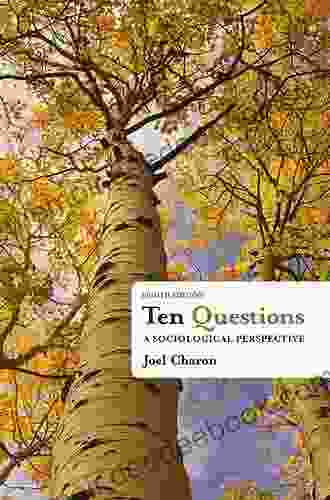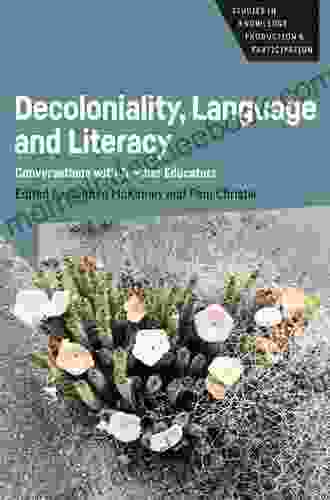Memory Politics and Yugoslav Migrations to Postwar Germany: A Complex and Contested History

The history of Yugoslav migrations to postwar Germany is a complex and contested one. The memories of this migration have been shaped and reshaped by political, social, and cultural forces, and these memories have in turn influenced the experiences and identities of Yugoslav migrants in Germany.
5 out of 5
| Language | : | English |
| File size | : | 3808 KB |
| Text-to-Speech | : | Enabled |
| Enhanced typesetting | : | Enabled |
| Word Wise | : | Enabled |
| Print length | : | 256 pages |
| Lending | : | Enabled |
| Screen Reader | : | Supported |
In this article, we will explore the different ways in which memories of Yugoslav migrations have been constructed and contested. We will examine the role of political and ideological factors in shaping these memories, as well as the ways in which migrants themselves have shaped and reshaped their own memories of the past.
The Political Context of Yugoslav Migrations
The political context in which Yugoslav migrations to postwar Germany took place was a complex and fluid one. The breakup of Yugoslavia in the early 1990s led to a series of wars and ethnic conflicts that displaced millions of people. Many of these people sought refuge in Germany, where they were often met with hostility and discrimination.
The political climate in Germany at the time was also influenced by the country's own history of migration. Germany had a long history of receiving immigrants from other countries, but it was not until the 1950s and 1960s that the country began to experience large-scale immigration from non-European countries.
The arrival of Yugoslav migrants in Germany coincided with a period of rising nationalism and xenophobia in the country. This made it difficult for many Yugoslav migrants to integrate into German society. They were often seen as outsiders and were subjected to discrimination and racism.
The Construction of Memory
The memories of Yugoslav migrations to postwar Germany have been constructed and contested in a variety of ways. Political and ideological factors have played a major role in shaping these memories, but migrants themselves have also shaped and reshaped their own memories of the past.
The political construction of memory has often been used to justify the exclusion and discrimination of Yugoslav migrants. For example, the German government has often portrayed Yugoslav migrants as a threat to German society. This narrative has been used to justify policies that restrict immigration and make it difficult for migrants to integrate into German society.
Migrants themselves have also played a role in constructing the memories of their own migration. They have often used their memories to make sense of their experiences and to create a sense of belonging in their new country. For example, many Yugoslav migrants have created their own cultural and social organizations in Germany. These organizations provide a space for migrants to connect with each other and to share their experiences of migration.
The Contestation of Memory
The memories of Yugoslav migrations to postwar Germany have been contested in a variety of ways. Migrants themselves have often challenged the dominant narratives about their migration. They have done this by creating their own cultural and social organizations, by writing their own histories, and by participating in political activism.
In recent years, there has been a growing movement to challenge the dominant narratives about Yugoslav migrations. This movement has been led by scholars, activists, and migrants themselves. They have argued that the dominant narratives about Yugoslav migration are often inaccurate and that they do not reflect the experiences of the majority of migrants.
The contestation of memory is an important part of the process of creating a more inclusive and just society. By challenging the dominant narratives about the past, we can create a more accurate and nuanced understanding of our history and we can work towards building a more just and equitable future.
The history of Yugoslav migrations to postwar Germany is a complex and contested one. The memories of this migration have been shaped and reshaped by political, social, and cultural forces, and these memories have in turn influenced the experiences and identities of Yugoslav migrants in Germany.
The memories of Yugoslav migrations are a reminder of the importance of memory in shaping our understanding of the past and our present. They are also a reminder of the power of memory to challenge injustice and create a more just and equitable society.
5 out of 5
| Language | : | English |
| File size | : | 3808 KB |
| Text-to-Speech | : | Enabled |
| Enhanced typesetting | : | Enabled |
| Word Wise | : | Enabled |
| Print length | : | 256 pages |
| Lending | : | Enabled |
| Screen Reader | : | Supported |
Do you want to contribute by writing guest posts on this blog?
Please contact us and send us a resume of previous articles that you have written.
 Book
Book Novel
Novel Chapter
Chapter Text
Text Story
Story Genre
Genre Paperback
Paperback Magazine
Magazine Bookmark
Bookmark Foreword
Foreword Preface
Preface Synopsis
Synopsis Manuscript
Manuscript Tome
Tome Bestseller
Bestseller Classics
Classics Library card
Library card Autobiography
Autobiography Memoir
Memoir Encyclopedia
Encyclopedia Narrator
Narrator Character
Character Resolution
Resolution Librarian
Librarian Catalog
Catalog Card Catalog
Card Catalog Study
Study Research
Research Scholarly
Scholarly Lending
Lending Reserve
Reserve Rare Books
Rare Books Special Collections
Special Collections Interlibrary
Interlibrary Literacy
Literacy Study Group
Study Group Awards
Awards Reading List
Reading List Theory
Theory Textbooks
Textbooks Kim Cano
Kim Cano Alexis Taylor
Alexis Taylor Peter Moulton
Peter Moulton Brendan Bruce
Brendan Bruce Kelly Leonard
Kelly Leonard Mitzi Dewhitt
Mitzi Dewhitt Ann Hunter
Ann Hunter Jeb Kinnison
Jeb Kinnison Steven Pressfield
Steven Pressfield Algernon Blackwood
Algernon Blackwood Marvin Himel
Marvin Himel Sakti Mishra
Sakti Mishra Krysia Jopek
Krysia Jopek Bobby Shanks
Bobby Shanks Je Quita Zachary Johnson
Je Quita Zachary Johnson Heather Hayes
Heather Hayes Peter Philippson
Peter Philippson Sally Roesch Wagner
Sally Roesch Wagner John William Daniel Robinson
John William Daniel Robinson Jim Ody
Jim Ody
Light bulbAdvertise smarter! Our strategic ad space ensures maximum exposure. Reserve your spot today!
 Norman ButlerFollow ·6.5k
Norman ButlerFollow ·6.5k Eugene ScottFollow ·5k
Eugene ScottFollow ·5k Jackson BlairFollow ·4.6k
Jackson BlairFollow ·4.6k Enrique BlairFollow ·15.6k
Enrique BlairFollow ·15.6k Sam CarterFollow ·11.5k
Sam CarterFollow ·11.5k Jackson HayesFollow ·10.4k
Jackson HayesFollow ·10.4k Charles BukowskiFollow ·2.5k
Charles BukowskiFollow ·2.5k Keith CoxFollow ·2.4k
Keith CoxFollow ·2.4k

 Vernon Blair
Vernon BlairHow to Get a Woman to Pay for You: A Comprehensive Guide...
In the modern dating...

 Levi Powell
Levi PowellPrinciples and Theory for Data Mining and Machine...
Data mining and machine learning are two...
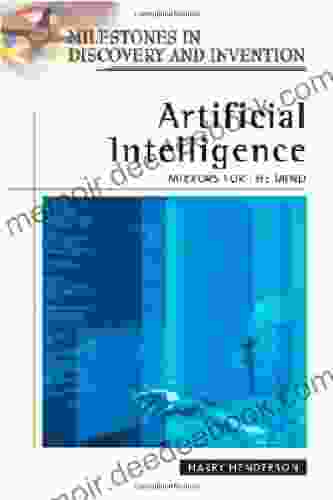
 Andrew Bell
Andrew BellMirrors For The Mind: Milestones In Discovery And...
Mirrors have been a part of human history...
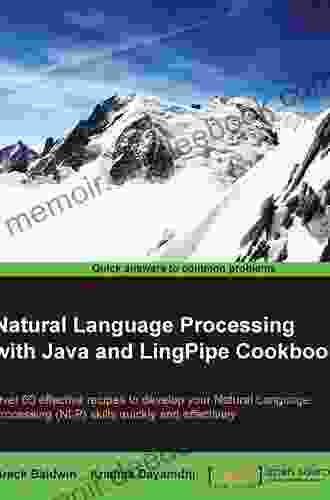
 Alec Hayes
Alec HayesDelving into Natural Language Processing with Java and...
Natural Language Processing (NLP) is an...
5 out of 5
| Language | : | English |
| File size | : | 3808 KB |
| Text-to-Speech | : | Enabled |
| Enhanced typesetting | : | Enabled |
| Word Wise | : | Enabled |
| Print length | : | 256 pages |
| Lending | : | Enabled |
| Screen Reader | : | Supported |


